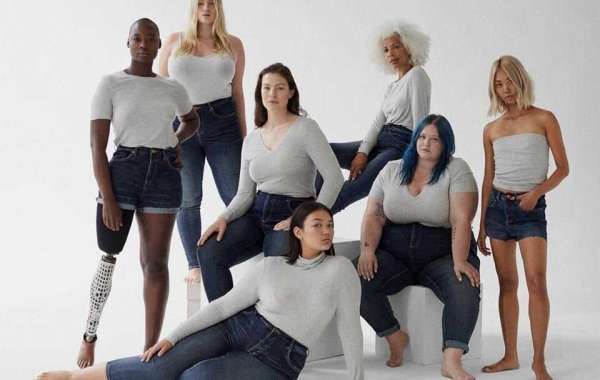Sustainable fashion has been gaining momentum in recent years, as consumers become more aware of the impact their clothing choices have on the environment and society.
But sustainable fashion is more than just using eco-friendly materials and reducing waste. It also means embracing diverse bodies and ethical production practices.
Firstly, let's talk about embracing diverse bodies. The fashion industry has long been criticized for its lack of diversity and inclusion. Models have traditionally been thin, tall, and able-bodied, perpetuating unrealistic beauty standards that can be harmful to individuals who do not fit these norms. However, in recent years, there has been a push for more inclusive representation in fashion.
Sustainable fashion brands are leading the way in embracing diverse bodies. They are featuring models of all sizes, ages, genders, and abilities in their advertising and on their runways. This inclusivity sends a powerful message to consumers that everyone deserves to feel beautiful and confident in the clothes they wear. It also helps to break down harmful stereotypes and promote body positivity.
Moreover, sustainable fashion also means ethical production practices. The fast fashion industry has been criticized for its exploitative labor practices, including low wages, long hours, and unsafe working conditions. However, sustainable fashion brands prioritize ethical production by ensuring their workers are paid fair wages, work in safe environments, and are not subjected to discrimination or harassment.
Sustainable fashion brands also often prioritize locally-made or handmade clothing, which reduces the environmental impact of transportation and supports local communities. Additionally, they use eco-friendly materials like organic cotton, recycled polyester, and biodegradable fibers to reduce the environmental impact of clothing production and disposal.
In conclusion, sustainable fashion is not just about eco-friendly materials and reducing waste; it is also about embracing diverse bodies and ethical production practices. Sustainable fashion brands are leading the way in promoting body positivity, breaking down harmful stereotypes, and prioritizing fair labor practices. By choosing sustainable fashion, consumers can feel good about the impact their clothing choices have on the world.








